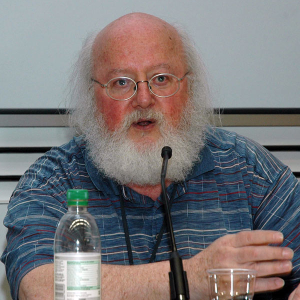Abstract:
If we want to escape years-long fruitless debates on biotechnology and biodiversity, we have to do more than just to deplore the debate full of artificial (or imagined) contrasts; the main arguments are summarized below. The debate needs a professional discursive structure and we must embrace different kinds of knowledge, and future new solutions should not be excluded, on the contrary: in new regulatory structures they also have to be anticipated. Mutual understanding of the different views on agricultural strategies may stimulate the debate and lead to innovative solutions. The debate must embrace also the full set of social sciences.
Biography:
Professor. em. University of Bern Born:6 December 1940 in Bern, Thesis: vegetation and glacier history, summa cum laude in 1972 Bern University. Assisting to Swiss Atlas of Plant Distribution, first Swiss research department. lichenology (chemosystematics and bio-monitoring air pollution). Lectures in plant biodiversity and vegetation ecology, director of the Bern Botanic Garden 1996-2006 and Professor h.c. 2000. Sabbatical stays: Bergen, Norway, Duke University in North Carolina, University of the West Indies in Jamaica and Missouri Botanical Garden in St. Louis. Emeritus 2006, guest prof. Delft University of Technology, Sabanci University in Istanbul. Moderating ‘Berne Debates’, early blog on plant biotechnology, presently—ASK-FORCE at PRRI (Public Research and Regulation Initiative) at European Federation of Biotechnology at Black Sea Biotechnology Association, Numerous committees: Chair European expert committee on plant conservation, Council of Europe, founding member Planta Europa, Swiss Biosafety Committee Biodiversity Section of EFB. Several Swiss and European research projects on gene flow, plant conservation, lichen chemosystematics and monitoring air pollution. Publications on biogeography, vegetation history, vegetation ecology, plant systematics (monography on Bromus), gene flow of crops and their wild relatives and agricultural biodiversity. He also has a special interest in Pythagorean Harmonics science and holistic questions in evolution.



